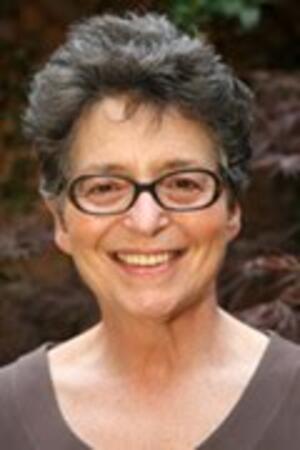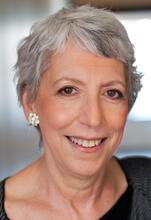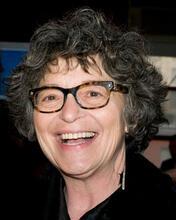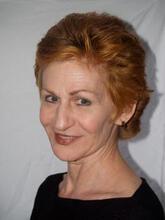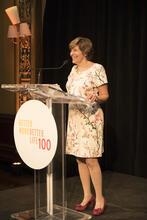Barbara Dobkin
Barbara Berman Dobkin is the pre-eminent Jewish feminist philanthropist of the end of the twentieth and beginning of the twenty-first century. Her vision, dedication, and philanthropic generosity have transformed the landscape of Jewish women’s organizations and funding in both North America and Israel. Her belief in the importance of zedakah began early; her zedakah began modestly but grew quickly as her family’s wealth increased. Her approach to philanthropy is practical, strategic, and rooted in the desire to leverage the leadership of women; she is a stronger believer in funding social change. She has made significant contributions to the arts, progressive political causes, and a wide range of films that focus on feminism and social justice.
Barbara Berman Dobkin is the pre-eminent Jewish feminist philanthropist of the end of the twentieth and beginning of the twenty-first century. Her vision, dedication, and philanthropic generosity have transformed the landscape of Jewish women’s organizations and funding in both North America and Israel. She has also made significant contributions to the arts, progressive political causes, and a wide range of films that focus on feminism and social justice.
In her central pursuit of the full equality and integration of women and women’s issues into every aspect of Jewish life, Dobkin co-founded Ma’yan: The Jewish Women’s Project, served as the founding chair of the Jewish Women’s Archive and the Hadassah Foundation, and was the board chair of American Jewish World Service. She has also been a pioneering donor-activist on Jewish gay and lesbian issues, in progressive Israeli organizations, and in the U.S. women’s funding movement, and she has garnered a national reputation as a speaker on issues of women’s philanthropy and leadership
Family and Education
Born on December 17, 1943, Barbara Berman grew up in the Jewish community of Baltimore, Maryland with her brother Geoffrey. Her mother, Ida, was a homemaker and social worker and her father, Samuel, was a businessman and civil servant. As a high school student, Barbara was the president of her class and an activist in local civil rights struggles. She received her B.A. from Marietta College in Ohio in 1965 and earned a Master’s of Social Work from Boston University in 1967. Barbara met her husband Eric Dobkin at Marietta and they married in 1965. Eric Dobkin was named a partner of Goldman Sachs & Co. in 1982. In 1985, he founded the Equity Capital Markets Group, through which he managed many of the world’s largest corporate financings. Barbara and Eric Dobkin have two daughters—Rachel, born in 1968, and Jessica, born in 1970.
Becoming a Philanthropist
Though she was not born into a wealthy family, Barbara Dobkin’s belief in the power of the Jewish obligation of Lit. "righteousness" or "justice." Charityzedakah for all Jews regardless of their income developed when she was a child. She credits her grandmother, who was the neighborhood “key-holder” for the Jewish National Fund zedakah boxes, as an early influence on her in this arena. Dobkin’s zedakah began modestly but grew steadily as her family’s wealth increased. She quickly became known as someone who “puts her money where her mouth is.” By 2001, Dobkin had given away over one million dollars, primarily through the Dobkin Family Foundation, of which she has been the driving force.
Dobkin’s earliest volunteer involvements included her local Parents-Teachers Association and the League of Women Voters, for which she became the New York chapter’s leading fundraiser and helped secure its first build in Albany, New York. During that time, she also supported the Yonkers’ battered women’s shelter, Westchester Jewish Community Services, and UJA-Federation of New York.
Approach to Philanthropy
Dobkin’s approach to philanthropy is practical, strategic, and rooted in the desire to leverage the leadership of women. She consistently supports projects that aim to raise the status of Jewish women and build the self-esteem of Jewish women and girls, and she never shies away from controversy or risk. She is a strong believer in funding social change, focusing on institutions that address the root causes of social ills rather than those that manage crises and do not alter the status quo. Dobkin’s belief that the arts, including music, film, and theater, provide creative vehicles for education and social change has led her to fund many social justice documentary films, as well as cultural projects including Women in Hollywood and ReelAbilities, the largest festival in the United States dedicated to promoting awareness and appreciation of the lives, stories, and artistic expressions of people with different disabilities.
Dobkin takes seriously her role as mentor to peers and younger women on using money as a tool for social change, and she has facilitated workshops for younger women on these issues. She addresses audiences all over the United States, inspiring women to educate themselves to be competent and comfortable with money, urging shared philanthropic priority-setting and decision-making among people of all genders, and setting an example of the need to back up priorities and ideals with funding.
In the 1990s, spurred on by her frustration with the lack of financial support among both Jews and non-Jews for projects that specifically target women and girls, Dobkin helped catalyze a movement of Jewish women dedicated to funding issues such as women’s spirituality, education and leadership, girls’ programming, body image and eating disorders, lesbian issues, and violence against women. She consulted with numerous individuals and organizations and worked to increase the communication and collaboration between various funding initiatives throughout the United States. The Dobkin Family Foundation organized and made possible the first national gatherings of Jewish Women’s Foundations in 2001 that grew into the Jewish Women’s Funding Network.
Programs for Jewish Women and Girls
In 1994, Dobkin approached her long-time friend Eve Landau and asked her to join her in founding a new initiative to further the status of women in the Jewish community. This initiative became Ma’yan: The Jewish Women’s Project, a program of the Jewish Community Center in Manhattan. Ma’yan’s mission—to serve as a catalyst for change in the Jewish community in order to create an environment more inclusive and responsive to women, their needs, and their experiences—was furthered through spiritual, educational, and leadership programs. During Ma’yan’s first years of existence, Dobkin was not only the sole funder of the organization and its first chairperson, but also worked as a full-time unpaid staff member, doing everything from organizing feminist seders for hundreds of women to stuffing envelopes. Dobkin’s hands-on and characteristically unpretentious approach helped shape the character of Ma’yan as an organization to which hundreds of Jewish women turned for guidance, inspiration, and resources for their Jewish feminist activism until its closure in 2017.
In addition to her commitment to a vibrant Jewish future transformed by women’s participation, Dobkin has a passion for preserving Jewish women’s history. An avid amateur collector of women’s books and ephemera, Dobkin was profoundly inspired to preserve Jewish women’s history after meeting Gail Twersky Reimer in 1994. With Reimer as the founding executive director and Dobkin as its chairperson, the Jewish Women’s Archive (JWA) became a national organization that uncovers, chronicles, and transmits the history of Jewish women’s lives.
In a sign of her deep commitment to the Jewish community and her refusal to give up on mainstream Jewish organizations’ potential to embody their ethical ideals, Dobkin, through her family foundation, made a grant of one million dollars to the newly formed Trust For Jewish Philanthropy of the United Jewish Communities to fund “Advancing Women Professionals and the Jewish Community.” This initiative, launched in February 2001 and spearheaded by Jewish feminist activist Shifra Bronznick, aimed to achieve gender equity within Jewish institutions, federations, and other Jewish social service organizations. On December 31, 2015, AWP formally closed, but its partners and allies continue to drive the work of gender equity and shared leadership in the Jewish community and beyond.
LGBTQ Issues
Dobkin has also been a trend-setting philanthropist in the arena of gay and lesbian issues, co-founding, at the Jewish Community Center in Manhattan, one of the first specifically Jewish groups for parents of gays and lesbians in the United States, providing the seed money for an innovative program for gay and lesbian teenagers run by Westchester Jewish Community Services, and being an important backer of Jewish gay and lesbian films and other projects.
Support for Israeli Feminists
Dobkin is particularly beloved among first-wave Israeli feminists for her enduring financial support and enthusiastic embrace of their work. Through US/Israel Women to Women, the New Israel Fund, and many personal relationships, Dobkin has helped Israeli feminist organizations grow stronger and become known to North American audiences. Dobkin has also contributed significantly to Israeli peace organizations, educational initiatives for women within academia and within progressive yeshivot, and programs seeking to equalize opportunity among Israel’s diverse citizens. Among the numerous organizations Dobkin has supported are the Israel Women’s Network, Kol Ha’isha—the women’s center in Jerusalem, Isha L’isha: Haifa Feminist Organization, Claf: Community of Lesbian Feminists in Israel, NISAN: Young Women Leaders, and Bat Shalom. In May 2002, Dobkin established the Jewel Bellush Award through US/Israel Women-to-Women, a $1,000 annual prize awarded to an Israeli woman who is a leader in the feminist movement and a contributor to social change on behalf of women.
As a significant supporter of and advisor to a variety of not-for-profit organizations both Jewish and secular in the United States and in Israel, Dobkin has served on numerous boards, including Lilith Magazine, the Women’s Donors Network, the New Israel Fund, the Jewish Funders Network, the White House Project, and the Sister Fund. Among the many other organizations Dobkin has supported are the Ms. Foundation for Women, Emily’s List, Bend the Arc, and Auburn Seminary.
Over the course of her 40 years as a philanthropic activist, Dobkin has received numerous awards from the New York Women’s Foundation, the Jewish Funders’ Network, the Jewish Book Council, and the Chronicle of Philanthropy.
Dobkin once wrote, “I use my voice, my influence and my money to benefit Jewish women and girls. To me this is a sacred mission.” Certainly this “sacred mission” is one that has touched the lives of countless women and left its mark on the Jewish and feminist communities in the United States and Israel.
Astrinsky, Elinoar, Interview of Barbara Dobkin, The Center for the Study of Women and Society Oral History Project, 1997.
Dobkin, Barbara. “Giving as Justice,” Ma’yan Journey, vol. 1, no. 1, Fall 1997.
“Donor Profile: Barbara Dobkin.” Women’s Funding Network Newsletter, Winter 2001.
Faingold, Noma. “Philanthropist Earmarks Jewish Women’s Causes.” Jewish Bulletin of Northern California, February 20, 1998.;
“Jewish Women’s Archive Director Applauds Award to Barbara Dobkin, A ‘Visionary Philanthropist,’” May 3, 2000, www.jwa.org.
Tamara Cohen conversations with Eve Landau, Joan Gordon, Carole Kessler.

